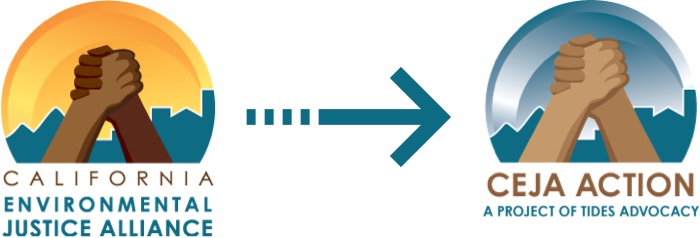Cutting through the noise in the Capitol
The 2013-2014 Legislative Session has started off with hundreds of bills, and dozens of them could have big impacts on low-income communities and communities of color throughout California.
California Environmental Quality Act (CEQA) reform: CEQA is one of the most important laws in the country to protect communities and the environment from polluting projects – it requires extensive analysis and public process around new developments. It has long been the target of industry, Chamber of Commerce and conservative legislators, who on an annual basis try to roll back its provisions and say that California’s environmental protection kill jobs and economic development (check out these examples of how CEQA has done the exact opposite and this report on the economic benefits of CEQA!).
Given new juice by Governor Brown’s support, the recession, and legislation like the exemption that gave megacorporation AEG an exemption for their new football stadium in LA, CEQA is once again under attack in this year’s legislative session. The good news is that coalitions like CEQA Works and Common Ground have formed to protect this critical law, and several elected officials are working to strengthen the bill. One great example is Assemblymember Nora Campos’ AB 543 that would require translation of all CEQA notices. In a state that is nearly half Spanish speaking, it is high time local agencies updated their public participation requirements to reflect the new reality in California.
CEQA foes were also dealt a blow when former Senator Michael Rubio, the leading champion of CEQA reform, left his post as Chair of the Senate Environmental Quality committee….to work for Chevron! A sad, but true, reflection of how big industry literally governs environmental decision-making in California. The depth of Rubio and industry ties are only starting to become clear: he recently revealed that an investment firm headed by an oil executive who runs the San Joaquin Refining Co. had financed home, office and agricultural land purchases for Rubio.
Despite Rubio’s absence, there are still many efforts moving to gut CEQA, so we all need to stay on the watch!
Getting Proposition 39 money out the door: Last fall, CEJA members pounded the pavement to turn out voters of color in support of Proposition 39, the Clean Energy and Jobs Act. The Proposition passed overwhelmingly. It generates millions for clean energy and energy efficiency by closing an out-of-state corporate tax loophole. There are several bills right now that will guide how this money is spent, which will focus on energy efficiency projects in schools in disadvantaged communities. Several of the bills include various provisions to hire from disadvantaged communities. Click here to read CEJA’s letter of support on Senator De Leon’s SB 39 and our recommendations for improving the bill.
CRPE steps up to fix Department of Toxic Substance Control: DTSC is the agency in charge of environmental enforcement and permitting related for toxic substances, but as a new report outlined, they have routinely failed to fulfill their mandate. More investigations revealed that Chief Deputy Director Odette Madriago and Deputy Director for Brownfields Stewart Black had invested six and seven figures into companies that the department regulates or licenses. Madriago owns up to $100,000 in Chevron and in BP Amoco at the same time that she appears to have participated in agency decisions about not regulating the companies’ refineries and cleanup of its sites across the state.
CEJA member Center on Race, Poverty and the Environment and Assemblymember VM Perez are stepping up to the challenge with AB 1329. The bill will create a plan to reduce the impacts of hazardous waste management in low-income communities and communities of color, addressing everything from increased transparency of planned and existing permits to restricting serial permit violators from getting new permits.
The aftermath of Chevron’s Richmond refinery explosion: CEJA members APEN and CBE have long worked to address the impacts of Chevron’s massive Richmond refinery on the nearby residents of color. When the refinery exploded in August 2012 sending nearly 15,000 people to the hospital, they were there talking to residents and holding Chevron accountable. Now Senator Loni Hancock and Assemblymember Skinner have introduced SB 691 and AB 1165 that will fix loopholes that prevent companies like Chevron from paying a fair penalty for their gross neglect of our communities and our environment and give the Division of Occupational Safety and Health (Cal/OSHA) new powers to force the correction of unsafe conditions, even if a company is trying to appeal their fines. This is exactly what Chevron is trying to do right now – wiggle out of paying anything for the August 2012 fine by using their army of lawyers to appeal the fine that CAL-OSHA charged them.
Clean water is a human right: Last year, EJ groups in the Central Valley had a huge victory with winning a bill that declares Safe Drinking Water is a human right. Now, there is an entire Clean Water for Californians bill package. Many small, rural, predominately Latino communities have contaminated drinking water, largely due to pollution from industrial agriculture and dairies. Compounding the pollution is the difficulty of securing resources for small water systems in need. The bill package tackles everything from increased resources for small communities to technical changes to make easier for water systems to apply for public money.
Tracking fracking: There are a host of bills moving through the legislature right now that attempt to stop or lessen the disastrous impact of fracking on our communities and our environment. Stay tuned for more of our analysis on what to watch for with these bills!.

